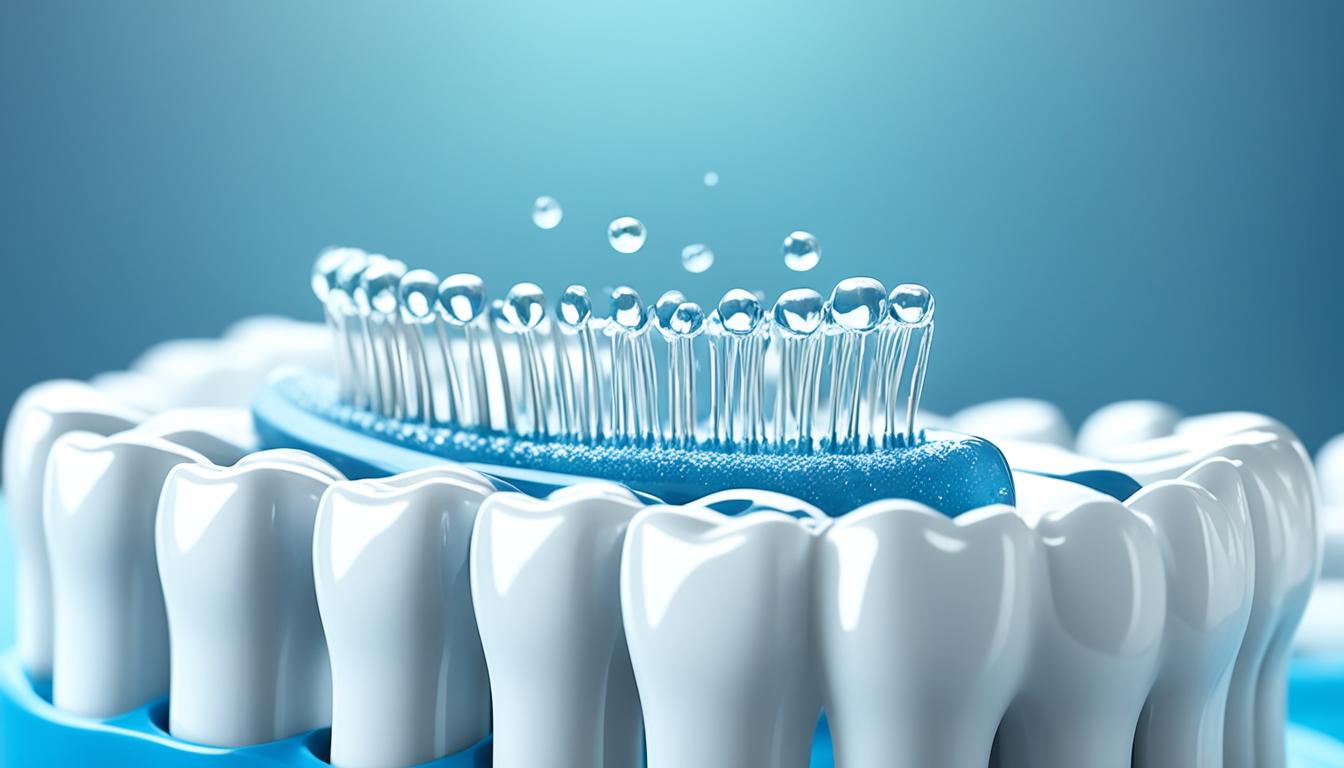Maintaining good oral hygiene is essential for a healthy smile. Proper oral care not only helps prevent dental issues like cavities, gum disease, and bad breath, but it also plays a significant role in promoting overall well-being. In this article, we will explore a variety of tips and techniques that will help you achieve and maintain optimal oral hygiene.
From brushing techniques to dietary habits, we will cover a range of topics to ensure you have a comprehensive understanding of how to keep your smile healthy. By following these oral hygiene practices, you can enjoy the benefits of strong teeth, fresh breath, and a confident smile.
Throughout the article, we will guide you on proper brushing and flossing techniques, provide insights into choosing the right oral care products, and emphasize the importance of a healthy diet for strong teeth and gums. We will also discuss the significance of regular dental check-ups and cleanings, and highlight the habits to avoid for better oral hygiene.
Furthermore, we will explore the connections between oral hygiene and overall health, as poor oral health can contribute to serious systemic conditions. By understanding these links, you will gain a deeper appreciation for the importance of maintaining good oral hygiene.
In addition, we will offer practical tips for establishing a dental care routine that incorporates all the essential practices discussed. These tips will help you develop a consistent routine and stay committed to your oral health goals in the long run. We will also share additional oral health tips and best practices to enhance your oral hygiene routine.
So, whether you are looking to improve your current oral care routine or seeking guidance on starting a new one, this article will serve as a comprehensive resource for all your oral hygiene needs. Let’s dive in and discover the essential oral hygiene tips for a healthy smile!
Proper Brushing and Flossing Techniques for Oral Health
When it comes to maintaining good oral hygiene, proper brushing and flossing techniques play a vital role in ensuring the health of your teeth and gums. In this section, we will provide you with step-by-step instructions on how to effectively brush and floss, promoting optimal oral health.
Brushing Techniques
To achieve the best results while brushing, follow these simple yet effective techniques:
- Hold your toothbrush at a 45-degree angle towards the gum line.
- Using gentle circular motions, brush the outer surfaces of each tooth.
- Remember to clean the inner surfaces of your teeth and the chewing surfaces as well.
- Don’t forget to brush your tongue gently to remove bacteria and freshen your breath.
- Brush for a full two minutes, twice a day, preferably in the morning and before bed.
By implementing these proper brushing techniques, you can effectively remove plaque and prevent tooth decay and gum disease.
Flossing Techniques
In addition to brushing, flossing is an essential component of a healthy oral hygiene routine. Follow these steps for successful flossing:
- Take about 18 inches of dental floss and wind it around your middle fingers, leaving a few inches in-between.
- Gently guide the floss between your teeth using a sawing motion.
- Curve the floss into a C shape against one tooth and slide it under your gum line.
- Move the floss up and down several times to remove plaque and debris.
- Repeat these steps for each tooth, using a clean section of floss each time.
By practicing proper flossing techniques, you can effectively remove plaque from areas that your toothbrush cannot reach, preventing gum disease and promoting optimal oral health.
To visualize the correct positioning and technique while brushing and flossing, refer to the image below:
Choosing the Right Oral Care Products for Optimal Hygiene
When it comes to maintaining optimal oral hygiene, choosing the right oral care products is essential. From toothbrushes to toothpaste, mouthwash to dental floss, each product plays a vital role in keeping your teeth and gums healthy. By selecting the right products, you can effectively remove plaque, prevent cavities, and maintain fresh breath.
Let’s start with toothbrushes, as they are the foundation of any oral care routine. When choosing a toothbrush, consider the bristle softness. Soft or extra-soft bristles are recommended to prevent gum irritation and enamel erosion. Additionally, opt for a toothbrush with a comfortable handle that allows for easy maneuverability.
Next, let’s talk about toothpaste. Look for toothpaste that contains fluoride, as this mineral helps protect your teeth against cavities. Fluoride strengthens the enamel and repairs early signs of decay. Additionally, consider toothpaste that is approved by the American Dental Association (ADA) to ensure its effectiveness and safety.
Mouthwash is another valuable addition to your oral care routine. It helps reach areas that are difficult to clean with a toothbrush or floss. Look for an alcohol-free mouthwash to avoid dryness or irritation. Additionally, choose a mouthwash that offers benefits like freshening breath, preventing plaque buildup, or reducing gum inflammation.
Dental floss plays a crucial role in removing plaque and food particles from between your teeth. Choose a floss that suits your preferences and needs. Whether you prefer traditional string floss, floss picks, or water flossers, the important thing is to use it regularly and effectively. Flossing daily is recommended to prevent gum disease and maintain optimal oral hygiene.
By considering factors like bristle softness, fluoride content, ADA approval, and individual preferences, you can select the best oral care products for your needs. Remember, maintaining optimal oral hygiene is an investment in your overall health and well-being.
Maintaining a Healthy Diet for Strong Teeth and Gums
In order to maintain good oral hygiene, it is essential to pay attention to your diet. The foods and beverages you consume have a significant impact on the health of your teeth and gums. A healthy diet not only supports overall well-being but also promotes strong teeth and gums.
One of the main culprits of tooth decay is sugary and acidic foods. High sugar content in foods and drinks can contribute to the growth of harmful bacteria in the mouth, leading to dental cavities. Acidic foods, such as citrus fruits and soda, can erode tooth enamel and increase the risk of tooth sensitivity and decay.
To counterbalance the negative effects of sugary and acidic foods, it is important to include tooth-friendly dietary choices in your mealtimes. Opt for fresh fruits and vegetables that are rich in important nutrients for oral health, such as calcium and vitamin C. Foods like dairy products, leafy greens, and nuts can help strengthen teeth and maintain healthy gums.
In addition to choosing the right foods, staying hydrated is crucial for maintaining oral health. Drinking plenty of water helps flush away food particles and bacteria, preventing plaque buildup and reducing the risk of gum disease. Water also promotes saliva production, which is essential for neutralizing acids and protecting tooth enamel.
By adopting a nutritious diet and maintaining proper oral hygiene practices, you can significantly improve the strength of your teeth and gums. Remember to brush your teeth twice a day, floss regularly, and visit your dentist for routine check-ups and cleanings.
Regular Dental Check-ups and Cleanings for Oral Maintenance
Regular dental check-ups and professional cleanings play a crucial role in maintaining good oral hygiene. These routine visits to your dentist are essential for preventing dental problems and ensuring the overall health of your teeth and gums.
It is recommended to schedule dental check-ups at least twice a year, although your dentist may suggest more frequent visits depending on your oral health needs. During these appointments, your dentist will conduct a comprehensive oral exam to evaluate the condition of your teeth, gums, and mouth.
Professional cleanings performed by a dental hygienist are an integral part of oral maintenance. These cleanings go beyond what you can achieve with regular brushing and flossing, as they involve the removal of plaque and tartar buildup that can lead to gum disease and tooth decay.
By having regular check-ups and cleanings, you not only maintain a healthy smile but also give your dentist the opportunity to identify early signs of dental issues. This early detection enables prompt treatment, preventing the progression of dental problems and saving you from potential discomfort and costly dental procedures.
Habits to Avoid for Better Oral Hygiene
When it comes to maintaining good oral hygiene, it’s not just about what you do, but also what you don’t do. Certain habits can have a negative impact on your oral health and should be avoided. By being aware of these habits and making changes, you can promote optimal oral hygiene and prevent potential dental problems.
One habit to avoid is tobacco use, whether it’s smoking cigarettes or chewing tobacco. Tobacco products can stain your teeth, cause bad breath, and increase the risk of gum disease and oral cancer. Quitting or avoiding tobacco altogether will not only benefit your oral health but also your overall well-being.
Excessive alcohol consumption can also harm your oral health. Alcohol can dry out your mouth, leading to a decrease in saliva production. Saliva plays a crucial role in neutralizing acids and rinsing away bacteria, so a dry mouth can increase the risk of tooth decay and gum disease. It’s important to drink alcohol in moderation and stay hydrated with water.
Teeth grinding, also known as bruxism, can cause significant damage to your teeth and jaw. Grinding your teeth can lead to tooth erosion, jaw pain, headaches, and even tooth fractures. If you suspect you grind your teeth, it’s essential to seek treatment from a dental professional to prevent further damage.
Nail-biting is a common habit that can negatively affect your oral health. Biting your nails can introduce bacteria from your fingers into your mouth, increasing the risk of infections. It can also cause tooth misalignment and lead to chipped or cracked teeth. Finding healthier ways to manage stress, such as deep breathing or exercise, can help break the nail-biting habit.
Using your teeth as tools may seem convenient, but it can cause significant damage. Opening bottles, tearing packages, or biting off tags can result in tooth fractures, chips, or even dislodgement. It’s important to use appropriate tools, like scissors or bottle openers, to avoid dental emergencies.
By steering clear of these habits, you can protect your oral health and prevent potential problems in the future. Remember, maintaining good oral hygiene involves not only adopting healthy habits but also eliminating harmful ones. Take care of your teeth and gums by making conscious choices and seeking professional dental care regularly.
Importance of Oral Hygiene for Overall Health
Good oral hygiene goes beyond just having a bright smile. Taking care of your teeth and gums is essential for your overall health and well-being. Research has shown a clear connection between oral health and various systemic conditions, such as cardiovascular disease, diabetes, and pregnancy complications.
Studies have found that poor oral hygiene and gum disease can increase the risk of developing heart disease and stroke. The bacteria from gum infections can enter the bloodstream and contribute to the formation of plaques in the arteries, leading to blockages and cardiovascular problems.
Similarly, individuals with diabetes are more susceptible to gum disease and infections. Poor oral hygiene can make it difficult to control blood sugar levels, and high blood sugar can promote the growth of harmful oral bacteria. This creates a vicious cycle that can worsen both oral health and diabetes management.
For pregnant women, maintaining good oral hygiene is crucial not only for their own well-being but also for the health of their unborn child. Gum disease has been linked to preterm birth and low birth weight. By prioritizing oral care, expectant mothers can reduce the risk of complications and give their babies the best start in life.
By understanding the importance of oral hygiene for overall health, you can prioritize your dental care routine and make it an integral part of your daily life. Remember to brush and floss regularly, visit your dentist for check-ups and cleanings, and maintain a healthy diet to support strong teeth and gums. Your smile and your body will thank you!
Tips for Establishing a Dental Care Routine
Now that you understand the importance of maintaining good oral hygiene and have learned about the essential oral hygiene practices, it’s time to establish a dental care routine that will keep your smile healthy for years to come.
A consistent dental care routine is crucial in preventing dental issues such as tooth decay, gum disease, and bad breath. By following these practical tips, you can ensure that you incorporate the essential oral hygiene practices into your daily life:
- Brush your teeth twice a day: Use a soft-bristled toothbrush and fluoridated toothpaste. Spend at least two minutes brushing all surfaces of your teeth in gentle, circular motions. Don’t forget to brush your tongue as well to remove bacteria that can cause bad breath.
- Floss daily: Flossing helps remove plaque and food particles from between your teeth and along the gumline. Use a gentle sawing motion to guide the floss between each tooth and curve it around the base of each tooth to reach beneath the gumline.
- Choose the right dental products: Select toothbrushes with soft bristles and a comfortable grip. Opt for toothpaste that contains fluoride to strengthen your teeth and protect against cavities. Consider using an antimicrobial mouthwash to kill bacteria and freshen your breath.
- Schedule regular dental check-ups: Visit your dentist every six months for professional cleanings and comprehensive oral exams. Regular dental check-ups help detect any potential issues early on and ensure that your oral health stays on track.
- Stick to your routine: Make dental care a habit by incorporating it into your daily routine. Set reminders on your phone, establish a designated time for brushing and flossing, and make it a priority to keep your dental appointments.
By following these tips and establishing a consistent dental care routine, you can maintain optimal oral health and enjoy a healthy smile for life.
Remember, it’s never too late to start prioritizing your oral hygiene. Take the first step today and make dental care an essential part of your daily routine.
Additional Oral Health Tips and Best Practices
Alongside maintaining regular brushing, flossing, and dental check-ups, here are some additional oral health tips and best practices to further enhance your oral hygiene routine.
Using mouthwash correctly can be a valuable addition to your oral care routine. Choose an alcohol-free mouthwash that contains fluoride, as it helps strengthen tooth enamel and fight against tooth decay. Swish the mouthwash around in your mouth for about 30 seconds, ensuring it reaches all areas, and then spit it out.
Cleaning your tongue is another important practice for maintaining good oral hygiene. Use a tongue scraper or toothbrush to gently remove bacteria and food particles from the surface of your tongue. This not only helps prevent bad breath but also promotes a healthier mouth overall.
When it comes to fluoride treatments, consider asking your dentist for professional fluoride applications or using over-the-counter fluoride mouthwash or gel as recommended. Fluoride helps protect teeth from enamel erosion and cavities, making it an essential part of your oral health routine.
If you struggle with bad breath, in addition to regular brushing and flossing, try to address the root causes. This may involve improving your oral hygiene routine, staying hydrated, quitting tobacco use if applicable, and addressing any underlying dental issues.
Lastly, if you’re considering teeth whitening, it’s best to consult with your dentist to ensure it’s done safely and effectively. They can help determine the most suitable whitening method for you, balancing efficacy with potential tooth sensitivity.
By incorporating these oral health tips and best practices into your routine, you can take proactive steps towards maintaining a healthy and beautiful smile for years to come.






